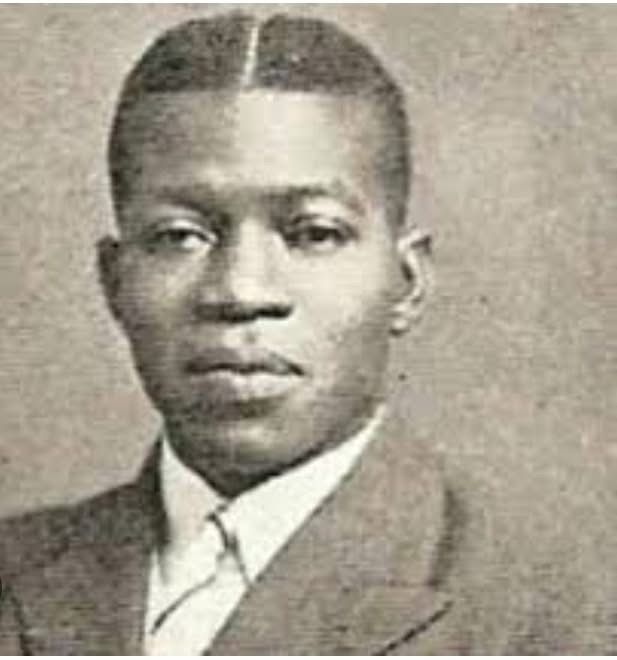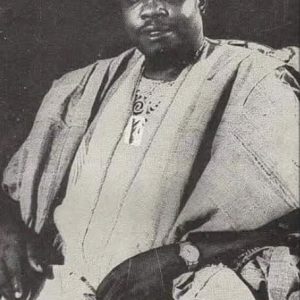The story of how a humble craftsman rose to become a pioneering industrialist and social figure in colonial Nigeria.
Discover the fascinating history of Chief Salami Agbaje (1880–1953), the self-made Ibadan entrepreneur who rose from tailoring to become the city’s wealthiest man, pioneering cinemas, transport, and trade while shaping early modern business culture in Nigeria.
In the early 20th century, when colonial commerce in Nigeria was dominated by expatriate firms, one man from Ibadan rewrote the story of indigenous enterprise. Chief Salami Agbaje, born in 1880, rose from the modest beginnings of a tailor’s apprentice to become Ibadan’s richest man, a powerful chief, and a trailblazer who brought modern business ideas into Yoruba society.

Early Life and Apprenticeship
Salami Agbaje was born in Ibadan, now the capital of Oyo State, Nigeria. Growing up in an era when Western education and modern trade were still limited, Agbaje displayed early entrepreneurial ambition. He travelled to Lagos as a young man, where he apprenticed as a tailor. However, Lagos’s competitive market and limited opportunities prompted him to return to his native Ibadan toward the end of the 19th century, seeking a more promising venture.
Transition to Timber and Commerce
Upon returning to Ibadan, Agbaje left tailoring behind and ventured into the timber trade. His big break came during the construction of the Lagos–Ibadan railway line, completed in 1901 (not 1871, as some accounts mistakenly state). He became a major supplier of timber for railway sleepers and infrastructure, a role that brought him significant profit and business recognition.
Agbaje’s success in timber opened doors to broader commercial opportunities. He soon began produce buying — purchasing agricultural products such as cocoa, palm produce, and rubber from local farmers for resale to European exporters. This positioned him as a vital link between indigenous producers and colonial trading companies. By the 1920s, he was already being described in Yoruba News as one of Ibadan’s most prominent businessmen.
Diversification and Innovation
Never content with a single stream of income, Agbaje diversified into transportation, importation, and manufacturing. He imported cotton, gin, rum, sewing machines, umbrellas, hats, and building materials, while maintaining an expanding network of agents across the Yoruba hinterland. Remarkably, he became one of the first indigenous importers in Nigeria, breaking into a market dominated by foreign firms such as UAC and John Holt.
In a time when marketing was still novel, Agbaje used print advertising to promote his goods — a strategy rarely seen among African entrepreneurs of his generation. His innovative use of the press reflected his understanding of modern commerce and branding.
Pioneering Ventures in Ibadan
Agbaje’s contributions went beyond trade. He established the first privately owned motor garage in Ibadan, laying the foundation for motorised transport in the city. He was also a pioneer cinema owner, introducing the people of Ibadan to film entertainment long before cinemas became popular across Nigeria. His enterprise was so expansive that he employed both foreigners and Nigerians, an extraordinary achievement for an African businessman during the colonial period.
His colonial-style mansion, built in the 1930s, still stands as a testament to his wealth and influence — one of the earliest examples of modern architecture in Ibadan.
Rise in Chieftaincy and Controversy
Wealth in Ibadan often translated into social prestige, and Agbaje’s economic success soon elevated him within the traditional chieftaincy system. He was conferred with the title of Balogun of Ibadan, a position of both military and civic leadership. However, his rise was not without opposition.
Unlike other chiefs who frequently hosted open feasts and distributed money to the public — a practice deeply rooted in Ibadan’s culture of generosity — Agbaje was seen as reserved and business-focused. His refusal to engage in this “largesse tradition” earned him criticism from both the public and fellow chiefs.
In 1949, a group of Mogajis (clan heads) petitioned to block his ascension to the throne of Olubadan, alleging arrogance and stinginess. However, a formal inquiry later cleared him of all wrongdoing, affirming his right to retain his chieftaincy honours.
Family Life and Legacy
Chief Agbaje lived a polygamous life, reportedly marrying ten wives and fathering numerous children. He invested heavily in their education, sending some abroad — a rare privilege at the time. His family continued to play active roles in business and community service after his passing.
Chief Salami Agbaje died in 1953, leaving behind a legacy that redefined what it meant to be an African businessman in a colonial economy. His ventures in trade, transport, and entertainment contributed immensely to Ibadan’s urban growth and modernisation.
Today, Agbaje is remembered as a symbol of indigenous enterprise, a man who proved that Africans could compete in a globalised economy through innovation, hard work, and vision.
Chief Salami Agbaje’s life teaches the enduring lesson that ambition, education, and entrepreneurship can overcome structural barriers. Though misunderstood by some in his lifetime, his pioneering efforts helped shape the business culture of modern Nigeria. He stands as a reminder that true progress begins when individuals dare to look beyond limitations and create value within their communities.
References
Falola, Toyin. Yoruba Gurus: Indigenous Production of Knowledge in Africa. Africa World Press, 1999.
Mabogunje, Akin. Urbanization in Nigeria. University of London Press, 1968.
Yoruba News archives, 1920s (Ibadan).
Stay ahead with the latest updates!
Join The Podium Media on WhatsApp for real-time news alerts, breaking stories, and exclusive content delivered straight to your phone. Don’t miss a headline — subscribe now!
Chat with Us on WhatsApp







